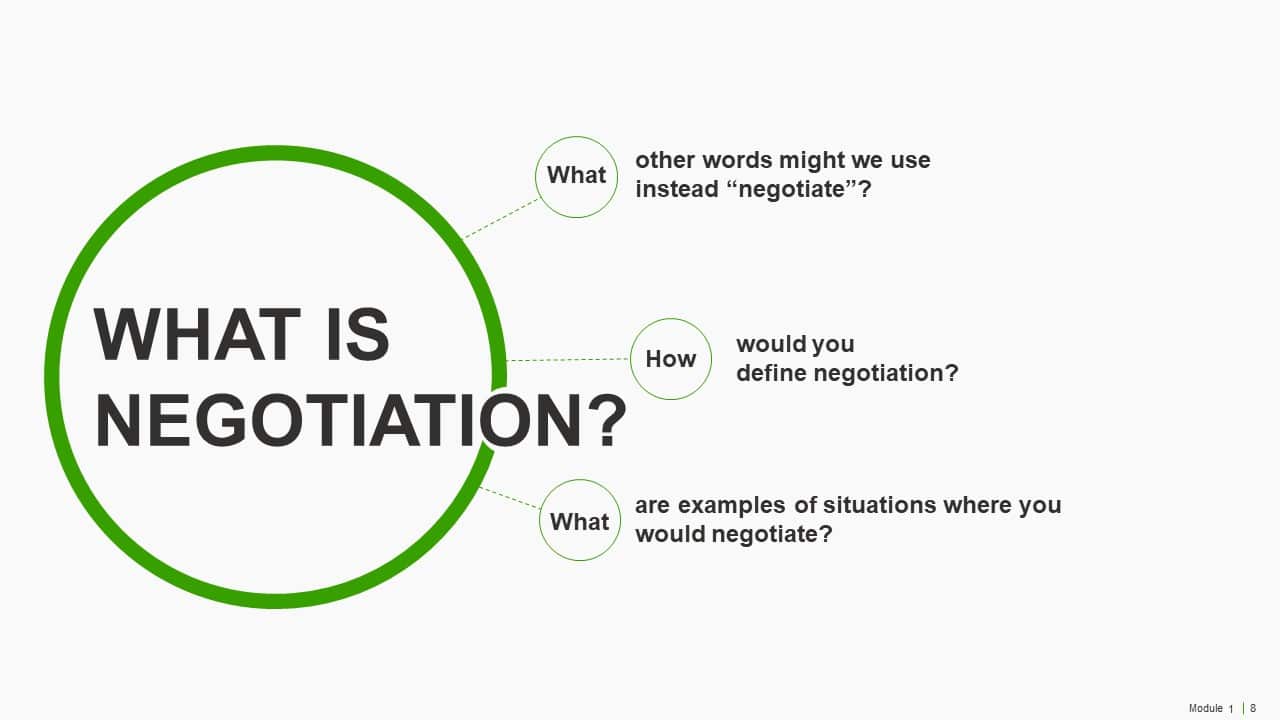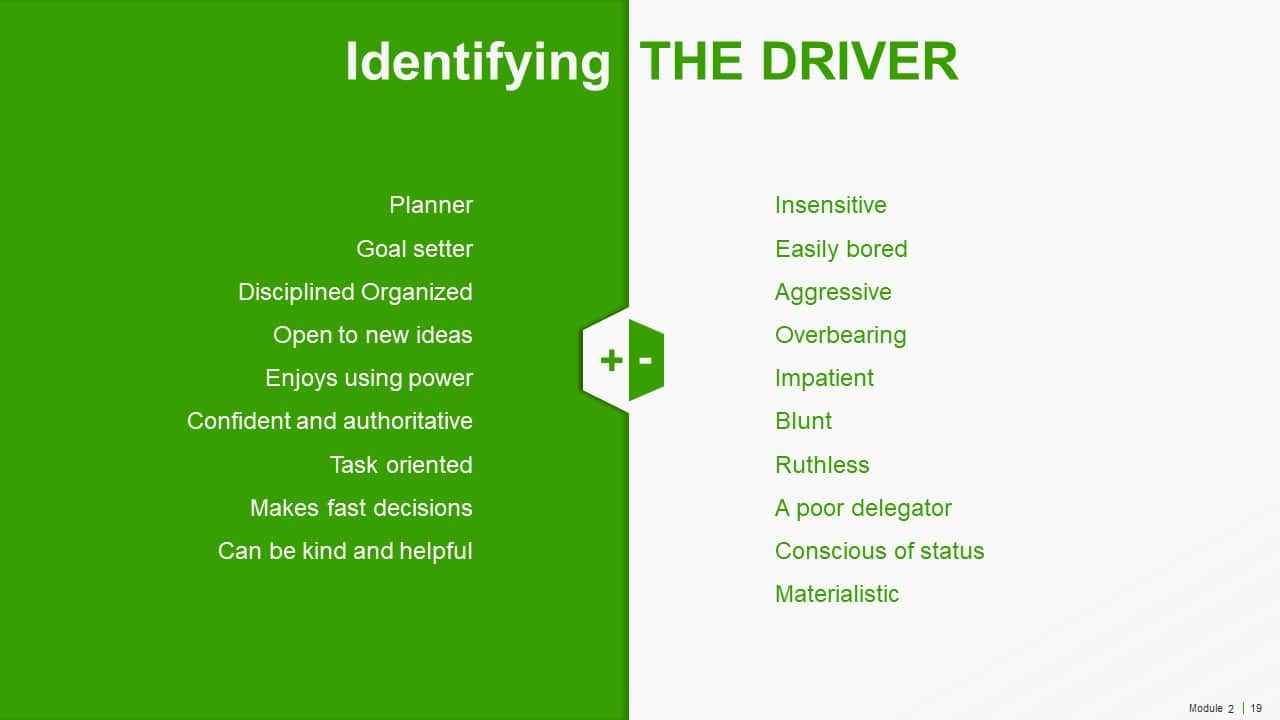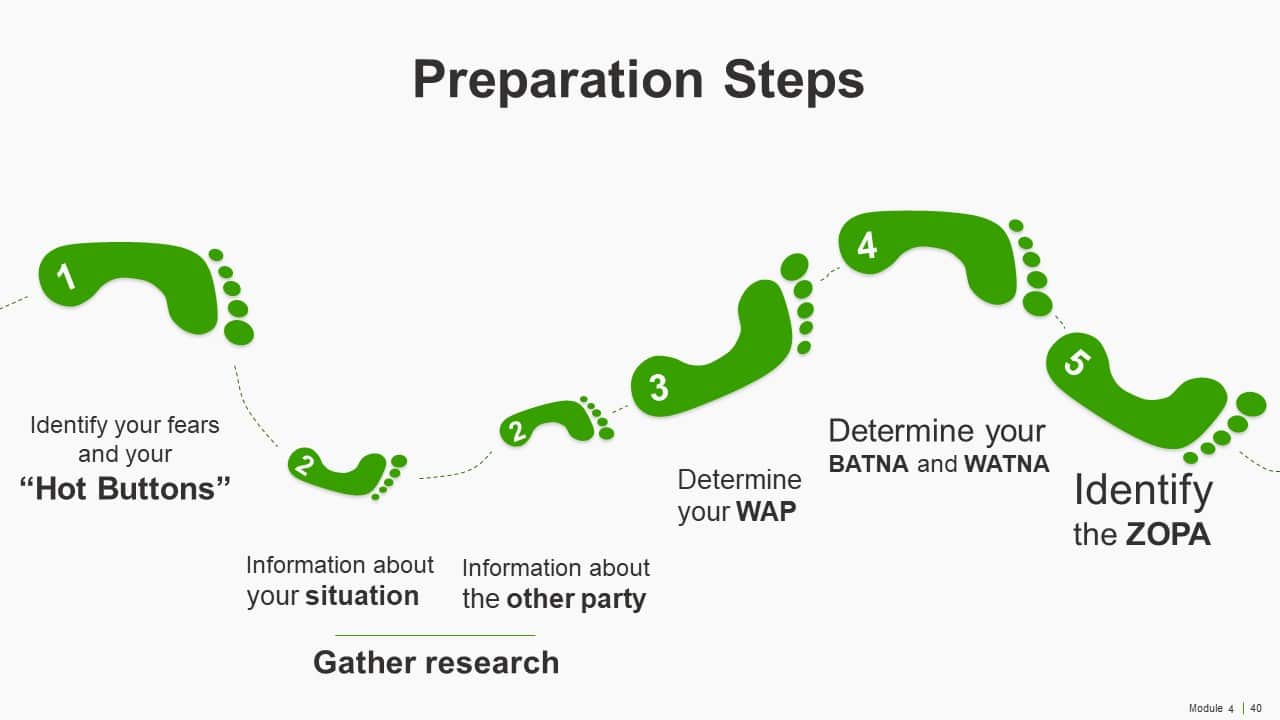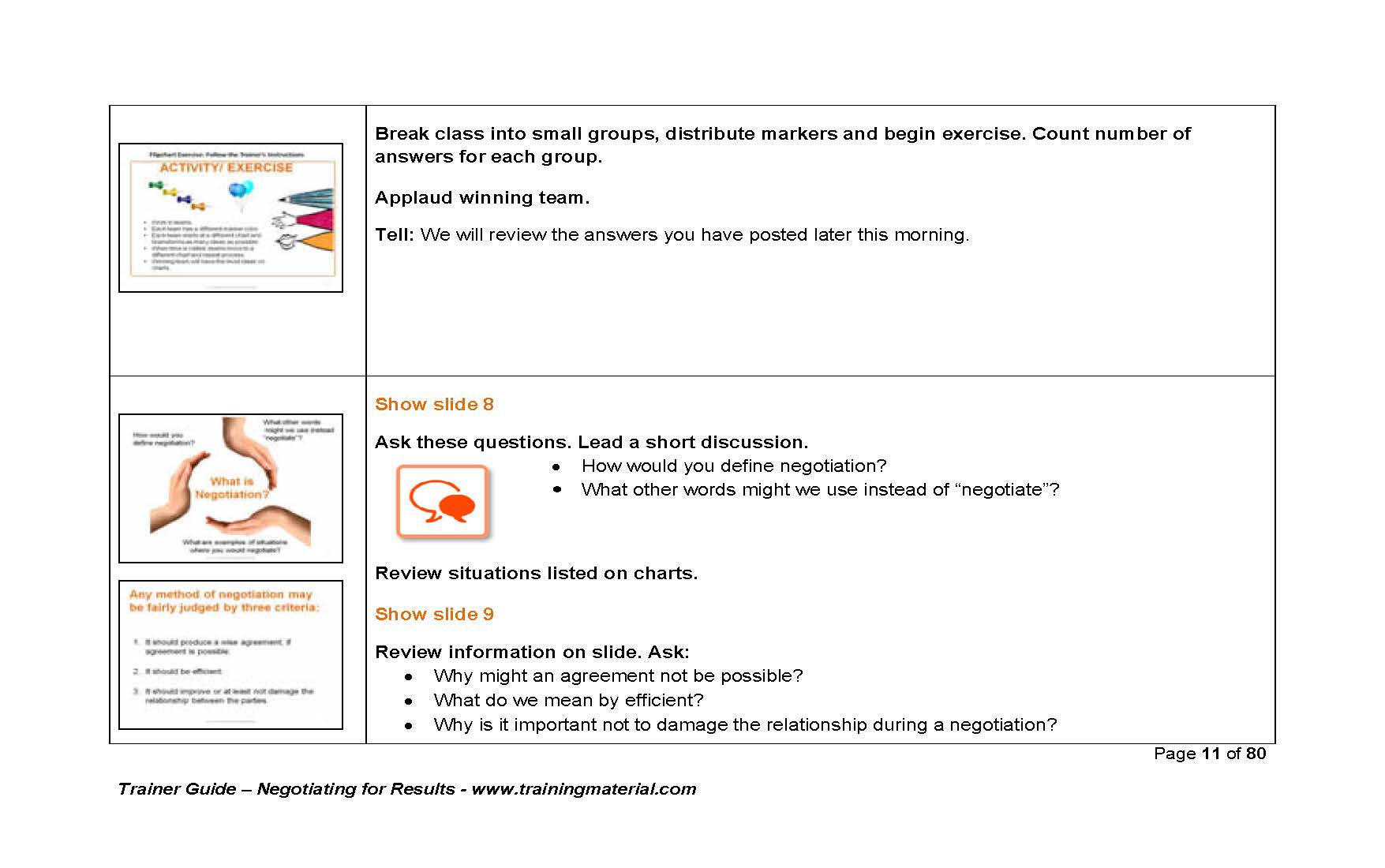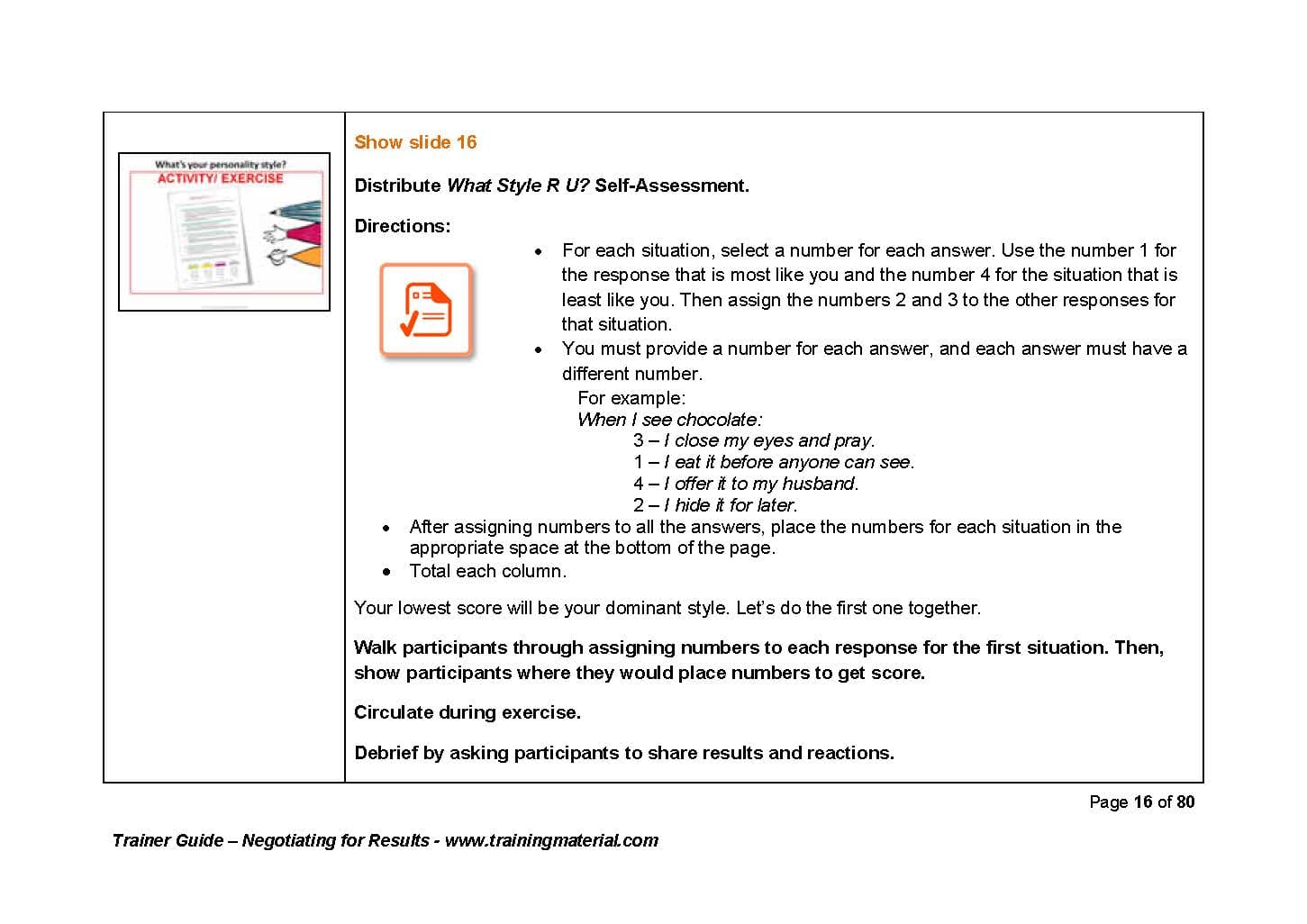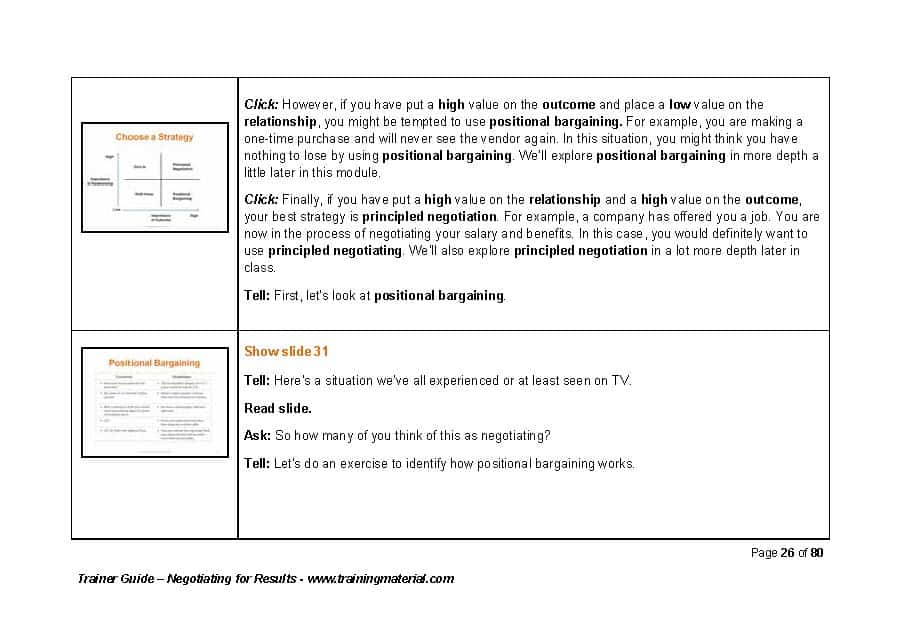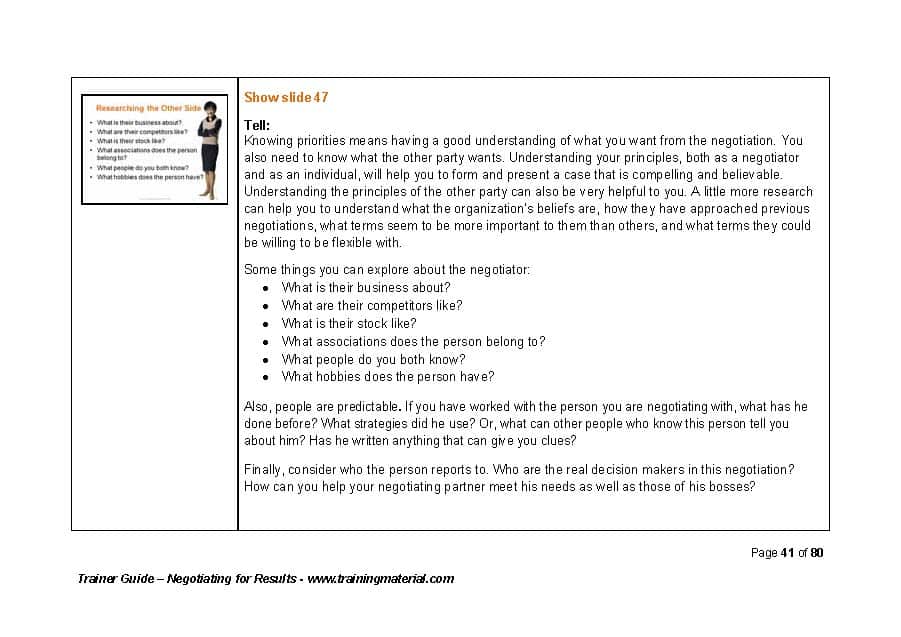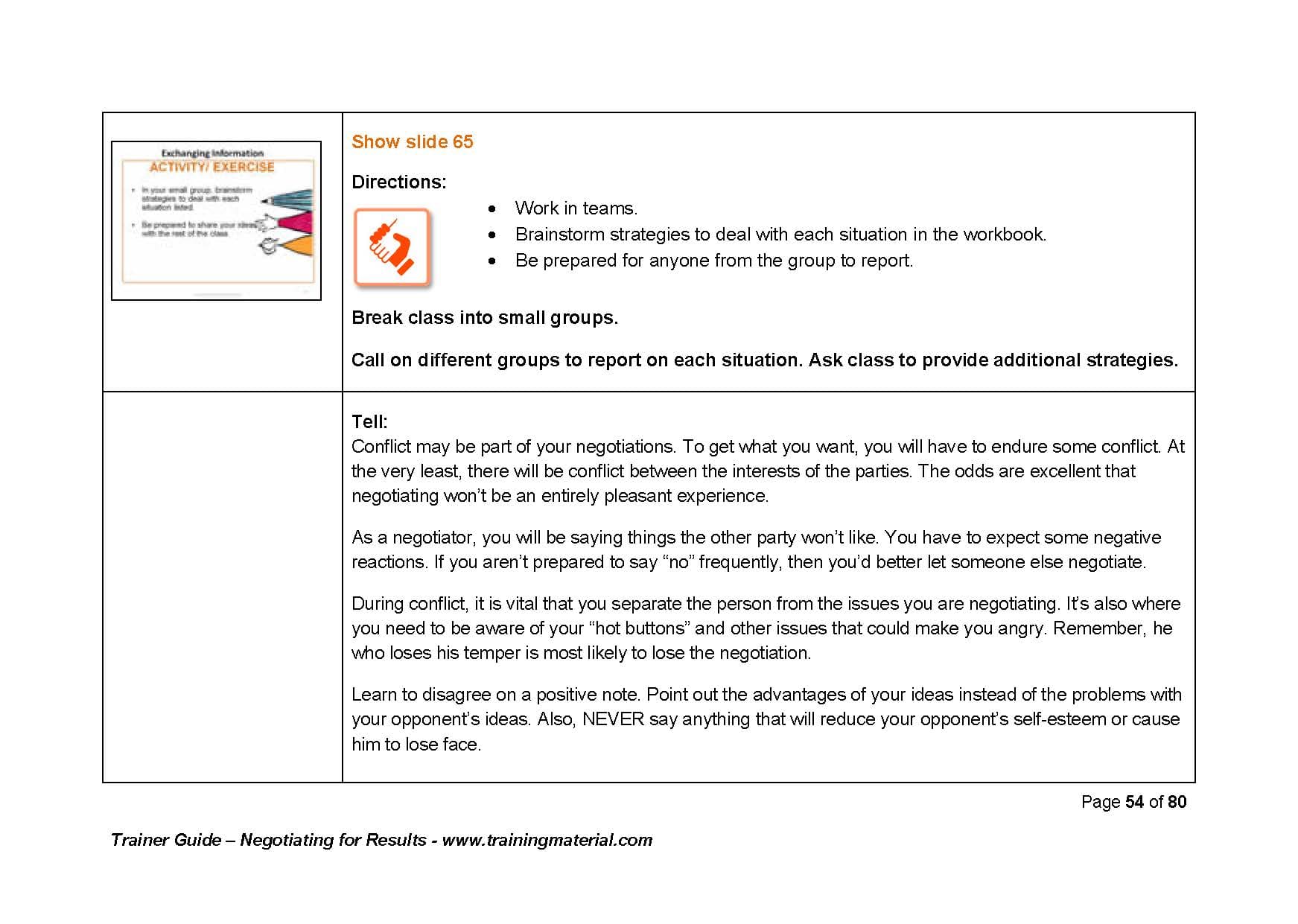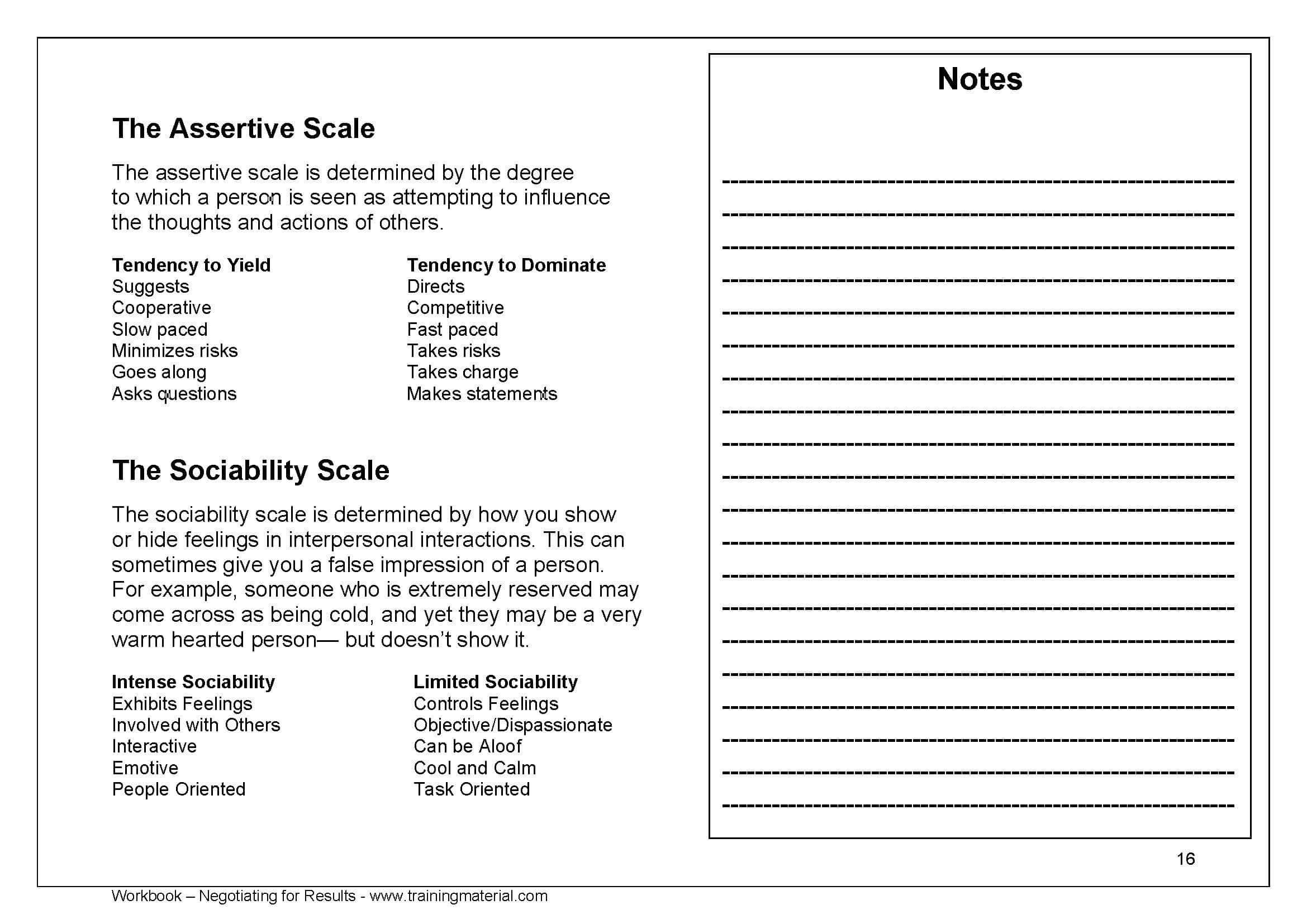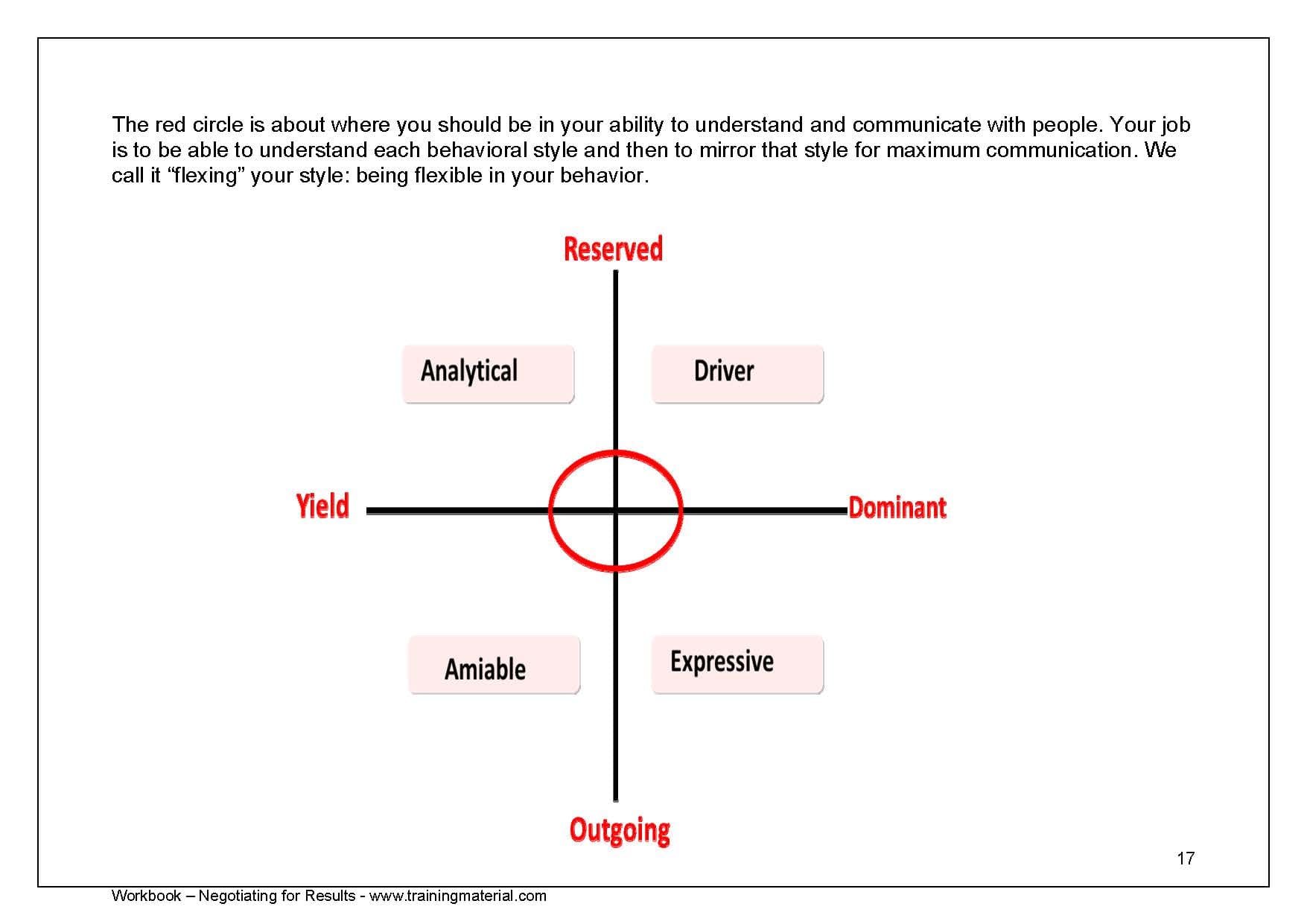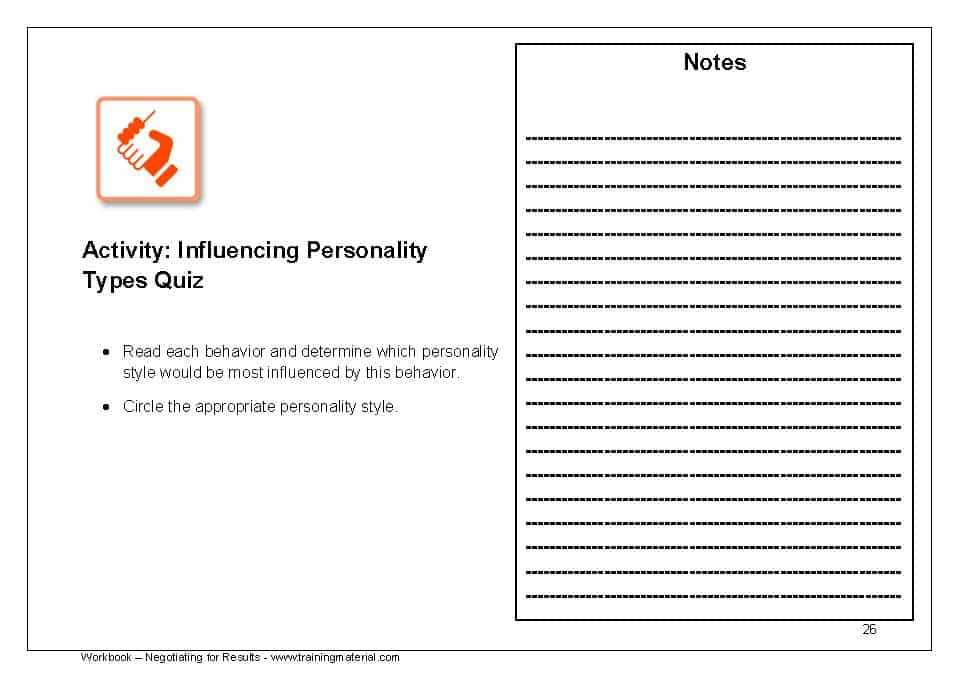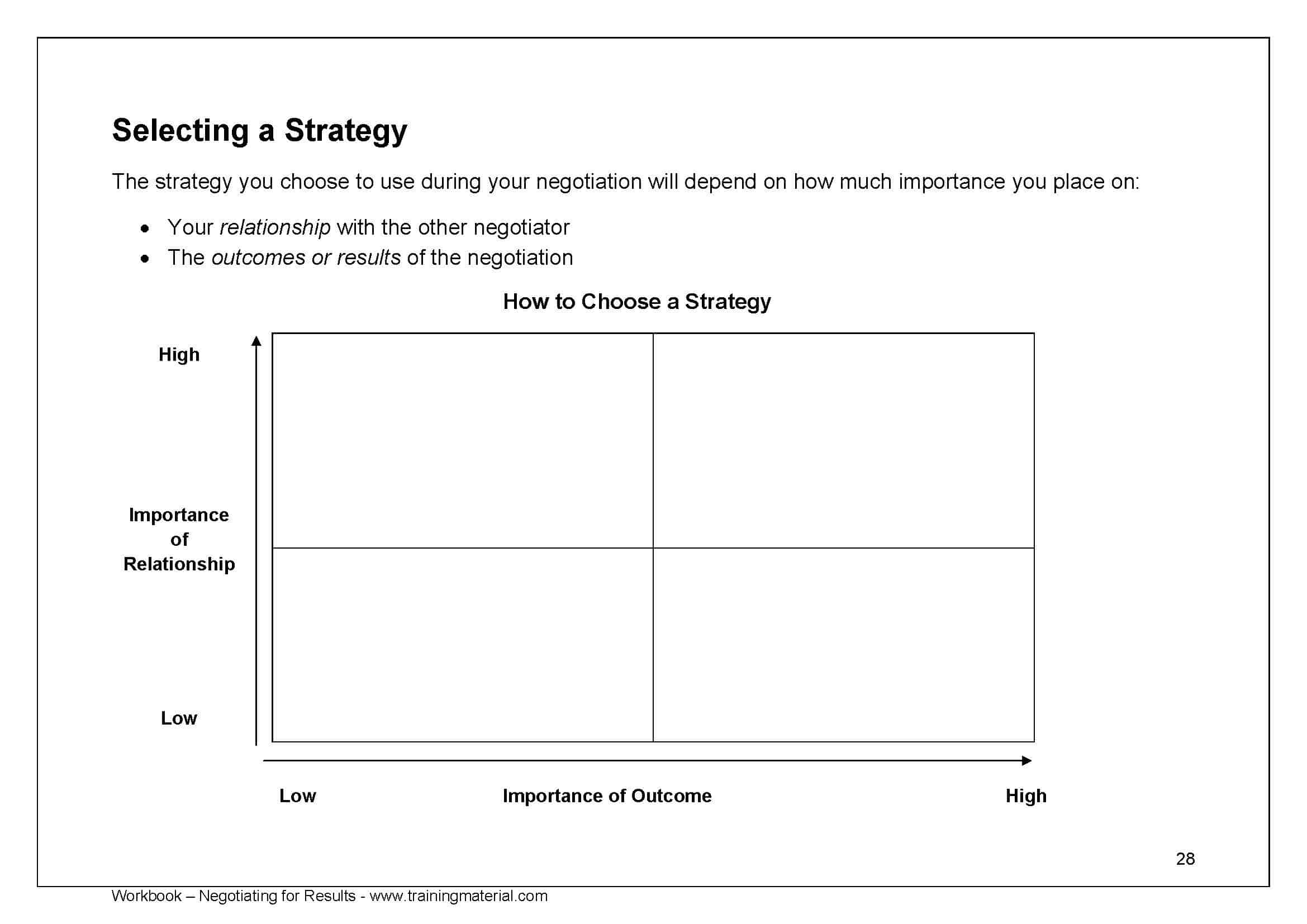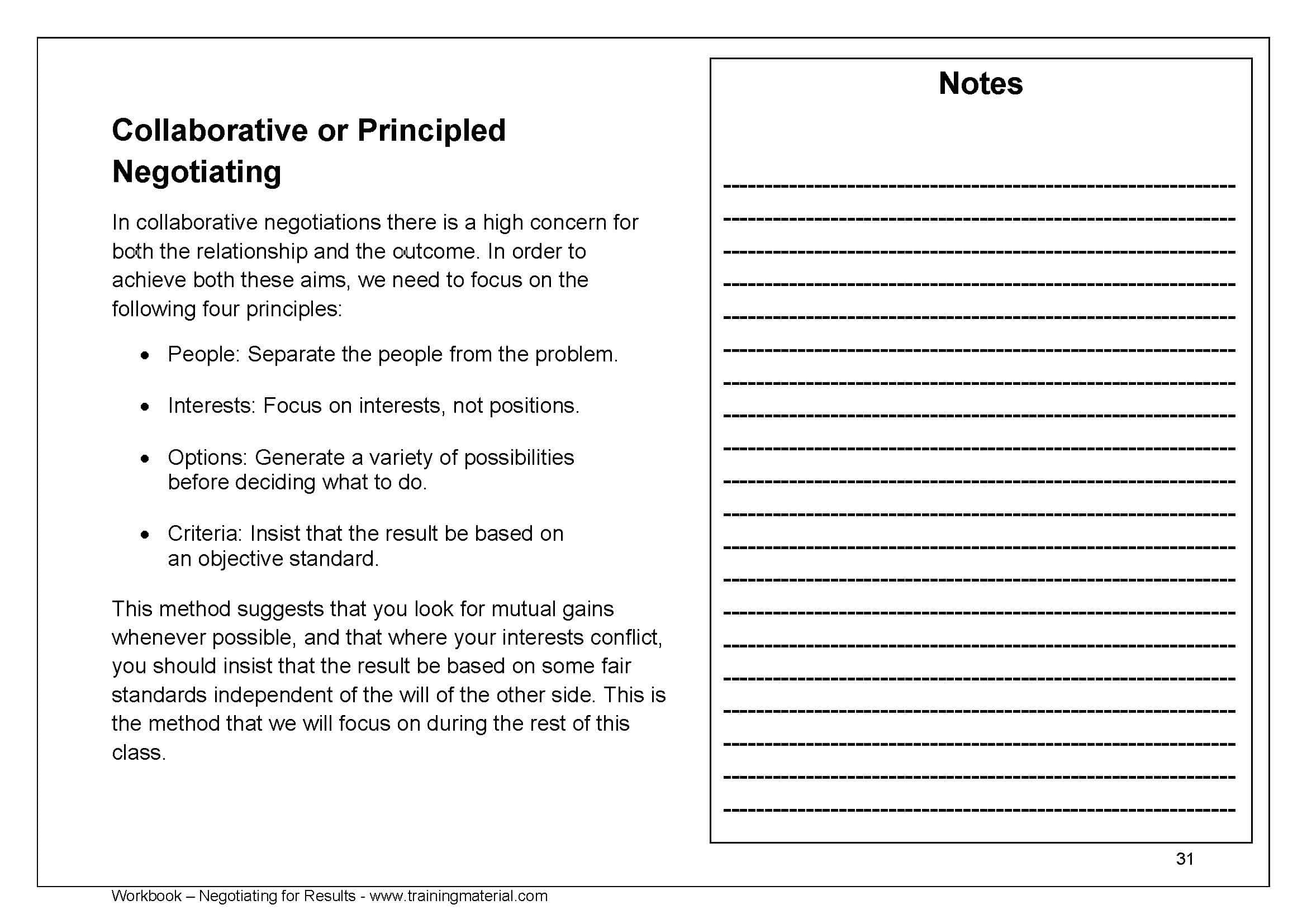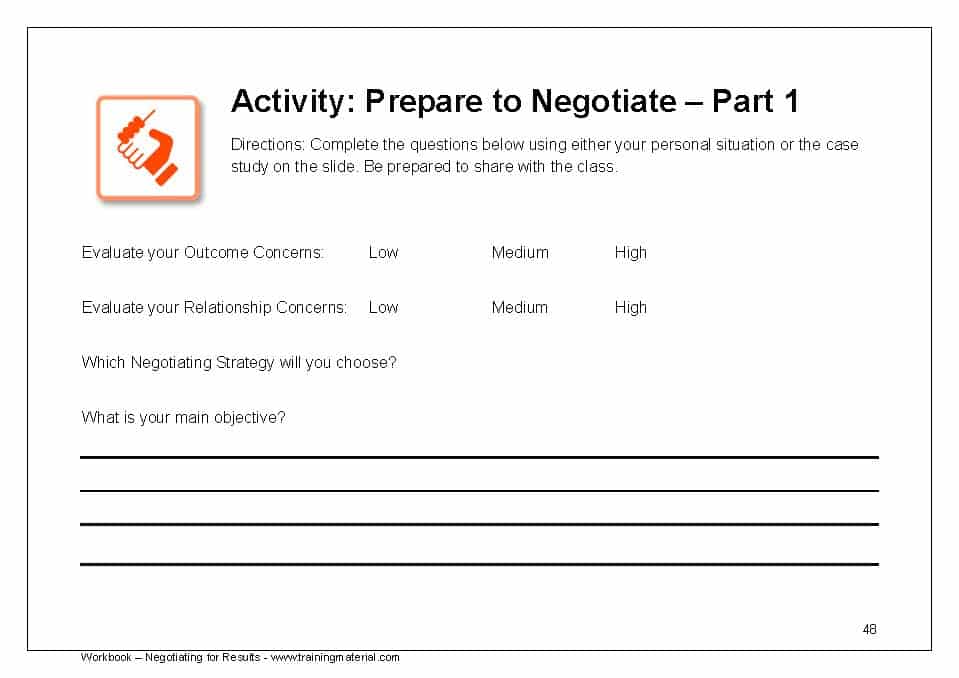Video Overview
What do I get exactly?
You receive a zipped file instantly upon purchase that includes the following in MS office format
Trainer Guide (80 Pages).
Student workbook (115 Pages).
Slide deck (91 slides).
Personality type assessment questionnaire.
Bonus activities ( 22 activities ).
Training support documents ( Training evaluation forms, 5 certificate templates, program outline).
Review game.
$179.95 $199.95
You will receive a secure link by email to download your purchase immediately after purchase.
 Buy Now, Download Instantly, Get A Bonus
Buy Now, Download Instantly, Get A Bonus
- 22 games and activities you can use to enrich your trainings.
- Useful training forms (Evaluation forms, certificates).
- All you need to run a great training program.
- A fun, engaging Power Point review game to easily review key questions and concepts, improve retention through a competitive challenge designed to be the grand finale of your training program.
 Competitive review game
Competitive review game
A Power Point Review game to excite your participants about your training material where they compete to win by answering questions about the training program in a series of fun rounds.
The competitive Power Point game is fully customizable, just change the questions/answers, images, backgrounds…etc. Save as a new file & create 100’s of other review games for any training materials or program to always end your training program on a high note.
Watch This Short Video
Overview
Course Objectives
By the end of this training course participants will be able to:
Define negotiation and Identify steps for proper negotiation preparation.
How to negotiate effectively with different personality styles.
Define principled negotiation and identify the four steps in the negotiation process.
Learn bargaining techniques and strategies of inventing options for mutual gain and move negotiations from bargaining to closing.
Outline of topics
Module 1 : Introduction to negotiation
Identify the qualities of successful and unsuccessful negotiators.
Define negotiation and provide examples of when you have negotiated in and outside work.
Identify a negotiation situation you will practice during class.
Module 2 : Personality types
Explain the benefits of knowing personality styles.
Explain the behaviors as well as the strengths/weaknesses of each personality style.
Identify your own personality style.
Identify how to work more effectively with each personality style while negotiating.
Module 3 : The Negotiation Process
Explain how to choose a negotiation strategy based on relationship and results.
Define positional bargaining.
Identify the differences between ” Soft” and ” Hard” negotiating.
Define principled negotiation.
Identify the four steps in the negotiation process.
Module 4: Preparing for negotiation
Identify fears and ” hot buttons ” as well as strategies to overcome them.
Identify areas to research on your side and on your opponent’s side.
Define your BATNA (best alternative to a negotiation agreement), WATNA (worst alternative to a negotiation agreement), WAP (walk away point) and ZOPA (zone of possible agreement).
Skill practice: Prepare for your personal negotiation situation.
Module 5: Opening the negotiation
Explain how to create a positive first impression.
Explain the importance of “small talk” and finding common ground in negotiation.
Explain how setting ground rules can influence a negotiation.
Identify important negotiation ground rules.
Module 6: Exchange information and bargain
Explain how to initially exchange information.
Identify contingency plans for unfavorable situations.
Explain bargaining techniques.
Explain strategies for inventing options for mutual gain.
Module 7: Handle opposition
Explain strategies to bring your opponent from NO to YES.
Identify strategies to deal with negative emotions.
Module 8: Close the negotiation
Explain how to move from bargaining to closing.
Explain the closing process.
Practice your personal negotiation situation and get feedback from other participants.
Competitive review game – An Exciting review challenge (Power Point Game) to end your training on a high note!
The Fully Customizable Training package includes
- Fully Scripted Training Guide
- Participant Reference Workbook
- Powerpoint Slide Presentation
Download Everything
Instantly
- Choose your training material package
- Add to shopping cart
- Pay using any major debit or credit card or using Paypal
- You will be taken to a download page to instantly download your purchase
- You will also receive your download links by email
- Unzip the file/s and get all your documents in MS office format
Maximize return
on your training investment
with the most cost effective solution
to your training needs
Frequently Asked Questions
Who is this training material package for?
Can I edit everything?
Can I reuse this training package?
Can I use this online?
Deliver fun, Effective And
Professional Trainings Easily!
Outstanding Value for a Modest Investment
Modular Flexibility for Enhanced Training
End on a High with a Competitive Review Game
Fully Customizable to Suit Your Unique Needs
Inspiring New Ideas for Engaging Activities
Instant Access for Immediate Implementation
Read Our
Testimonials
I have purchased several training courses over the past few years. I usually create my own content, but I have to say that I was impressed by the quality of the content. The courses are visually appealing, the learning objectives are well constructed...

My course materials were professionally designed in a compelling manner that resonated with my learners and made my delivery even more impactful. Instructional design principles were also applied in the design of the course materials...

Instructional Developer and Trainer, Canada
I just completed a three-day program ,using one of your two day packages. I was able to customize this program quite easily. The thorough work done by your team saved me a lot of time-and money. I am an experienced speaker/trainer...

Atlanta, Georgia USA
I have purchased the 3 training programmes of the Complete Communications Excellence Series. I consider that the GBP 99 cost represents excellent value for money and the materials are of a high quality. The programmes...

Team Leader,EU Support to Civil Society Project
I was looking for training material to enrich our current program in customer service. I am so glad i found the materials in this website. They are the complete package, and the bonus activities really helped me design...

Training Manager,ISN Albania
The only thing of higher quality than Training Course Material’s products is their commitment to customer engagement and support. On the few occasions when I’ve contacted their support team, their response have always been...

Rassette & Associates, Midland, Michigan, USA
I’ll be honest, at the price point for the courses I wasn’t expecting too much. However, I have to tell you that I am impressed with the materials! I spent a couple of hours reviewing the student workbook and facilitators...

Registered Corporate Coach™, Cuyahoga Falls, OH USA
I am super impressed. I am normally very picky (and very disappointed) in the quality of prepared content and this is just so well done.

Organizational Development Consultant, Oklahoma City, USA
I purchased your Train the Trainer program earlier this year and really love it. So does my client! Thanks so much for that opportunity!

Allgeier HR Consulting, Lake Placid, FLorida, USA
TrainingCourseMaterial.com's programs provide comprehensive information in a visually interesting format. Participants benefit from interactive activities that reinforce the content and making learning fun.

Trainer & Business consultant, San Francisco, USA
I found materials very useful and dynamic. I like the whole package and I think that the mix of theory and exercises is the best I could find. Also the package is the good value for money.
.

Corporate Trainer, Italy
I’m very impressed with the quality and professionalism of these training programmes. The content is structured and delivered in such a way as to facilitate a positive learning experience for the participants. The presentation and course notes are well-designed...

Trainer, Johannesburg, South Africa
I've been using training course materials for a number of years. They have some of the best products I seen on the market. Looking for engaging games, information and content Training Course Material is the way to go. Some of the best...

CPBA, CPMA, Keynote presenter, author and coach, NC USA
As a trainer, I found the Time Management Training course very comprehensive and easy to follow. I especially like the experiential aspects of the course content delivery. Every module of this package is laid out extremely well...

Safety, Training and Quality Assurance Manager, Inc. USA.
I like your training material very much which I have used before and I have not been able to get the quality of content and graphics from other courseware providers like Training Course Material. Com offers. It is very interactive...

Lead Trainer, Trinidad and Tobago, W.I.
I am very pleased with the presentation. My team and I are becoming familiarized with the information. That said, we are very pleased what you have produced.

President, Homecare Dimensions, Texas, USA
I was absolutely blown away by the quality of the training programs for such a low price.
.

Corporate Trainer, Florence, SC USA
TCM training materials are professionally written state of the art and masterfully done with up to date training aids and workbooks. Nowhere else could you find training materials of this quality for the price ... AAA+

Sales & Marketing trainer
The workshop is very well constructed, in a logical sequence and the content encompasses all the latest ideas and research. Ultimately a fantastic workshop to either deliver or participate in.
.

Professional Inspirations Ltd. UK
TrainingCourseMaterial.com have worked hard to create a totally tailored training solution for Mobile Telephony retail managers and sales teams. By creating high impact visuals and with varied and intelligent use of multi media visuals and activities...

innov8 Performance Limited, UK
I have purchased the time management package and I found it really easy to customize to meet my training requirements. The sequence of content was very conducive to life -long learning, the slides were very attractive and helpful...
.
.
.

Trainer and Consultant
Just a short note to say that since purchasing a course from yourselves, I tried 2 other vendors' courses (from U.K.) and regret wasting money on them, as their materials seemed as if a ten year old had cobbled them together in terms of format and content...

Dubai, UAE
In Sales training, TrainingCourseMaterial.com’s ability to identify the specific areas of skill gap and build a program that directly addressed those gaps is very professional. That, coupled with the dynamic training events, has helped customers...

Trainer & Consultant, Dubai, UAE
I loved all the activities that helped me achieve a high level of interaction and energy keeping participants engaged . all the activities, ice breakers and case studies that achieved a fun learning environment while maintaining depth in the knowledge acquired.

Freelance trainer and consultant, Egypt
Comprehensive & Well-structured
Training Course Design Documents
Even if you’ve never delivered a training course before and are finding the whole process a little daunting, our training materials provide everything you need to complete an effective, engaging and fun professional course.
Our training course materials are presented in an easy-to-follow format with enhanced instructions for trainers to explain all of the key points, models and concepts to delegates with clear directions and debriefing instructions for every activity and exercise, incorporating the key points and main takeaways to deliver and tips on how to get your points across. Our tabular Trainer’s Guide provides clear direction and suggestions on what to do and say with each presentation slide, to enhance the delivery of our high-impact PowerPoint slide deck and comprehensive participant workbook.
Training Concepts & Models
that Achieve Measurable Results
Our training course materials and courseware packages come with over 20 years of professional training design and delivery for some of the largest multi-national corporations in the world. Experienced instructional designers and senior trainers have researched and developed these training courses that have proven to be very popular with learners of all types and have consistently achieved measurable business results.
Affordable professionally designed
customizable training materials
You do not need a huge training budget to develop your people. Every true leader knows that staff development is at the core of his/her job. Now, even with a low training budget you can afford to deliver affordable, professionally designed course materials and courseware packages.

For
Trainers
Save time and money by delivering an effective training program first time, every time, using our affordable, content-rich training materials that are bespoke designed to ensure smooth delivery, superior understanding, and long-term retention.
Avoid wasting time researching and developing a training protocol that must be tested and delivered multiple times before you can get a real, tangible measure of its efficacy, and potentially, making an expensive and inefficient mistake.
Select one of our comprehensive, fully inclusive training courses or incorporate our modular courses into your existing materials to enhance your content and enrich delivery using fresh, engaging models and concepts that have been proven to work, time and time again.
Keeping your delegates engaged and switched on during learning sessions is one of the core challenges that even professional and experienced trainers commonly face – and our training course materials are specifically designed to encourage interaction and engagement, avoid boredom, and boost trainer confidence to ensure a seamless, slick delivery.
Take the hard work out of delivering training to your employees and ensure the maximum return on your investment!
TCM training materials are professionally written state of the art and masterfully done with up-to-date training aids and workbooks. Nowhere else could you find training materials of this quality for the price ... AAA+
Peter Morrison
Sales & Marketing trainer

For
People Managers
As a leader, developing and supporting your team is of course your top priority – so discover the trainer in you and take charge of your team’s professional development and advancement with our affordable courseware packages and training course materials.
Our carefully structured and highly organized courseware materials allow anyone with basic presentation skills to follow and deliver training content confidently and efficiently, complete with helpful tips and insights provided at key stages along the way to build and maintain momentum and ensure an impactful delivery.
Liven up team meetings, choose and reinforce key learning points and boost your team’s enthusiasm and understanding with our professional training course material packages, and integrate bitesize learning opportunities into huddles and collaborations to stress specific skills and concepts that serve your key development areas.
Take control of your team and help them – and you – to reach your full potential by using our training course materials to deliver seamless workplace learning on-the-go.
Customize Your Training Package
To Suit Your Requirements
All our training course material packages are 100% customizable and can be adapted to match your training objectives and the requirements of your audience. You can even re-brand your course materials with your own corporate identity, although we retain copyright of our course content and do not permit the resale of our packages.
Add Standalone
Modules
Individual standalone training modules and topic areas can be integrated into all of our training programs, to allow you to focus on and customize specific topics as required, or to enable you to add or incorporate your own existing course materials.
Let Your Delegates Grow With
Activities, Exercises And Games
All of our training course material packages include a plethora of self-discovery and independent learning activities, exercises, and games designed to address specific key learning points, as well as providing additional ideas for activities and interaction to add depth and interest to your existing course materials.
Our comprehensive range of courseware packages and training modules incorporate a range of niche-specific subject areas targeted towards clients in the retail sector, including topics such as retail selling skills and retail sales forecasting and planning . We also offer a range of call center-specific training courses like controlling calls , handling angry callers and telephone debt collection.
Unlike the wide variety of off-the-peg training course material providers on the internet that wait to trap the unwary would-be trainer with generic canned courses that prioritize style over substance, our soft skills topics are carefully developed to target specific skills and mindsets using hands-on immersive learning and innovative training models.
All our training materials and courseware packages are designed and developed with both trainers and trainees in mind, and have been tried and tested on the job to ensure their successful delivery by trainers of all types, from frontline employees and first-timers to senior management and training professionals alike.
Read Our
Testimonials
Get all our training Packages
and Save!
To find out more about how our training course materials can help you to boost engagement, deliver effective training and enhance your team’s knowledge and understanding of the key points that are important to you, please take a moment to read our frequently asked questions, or get in touch now if you want to know more.
Finally, check out our testimonials page to find out what trainers, business professionals, team leaders, and consultants are saying about us!



